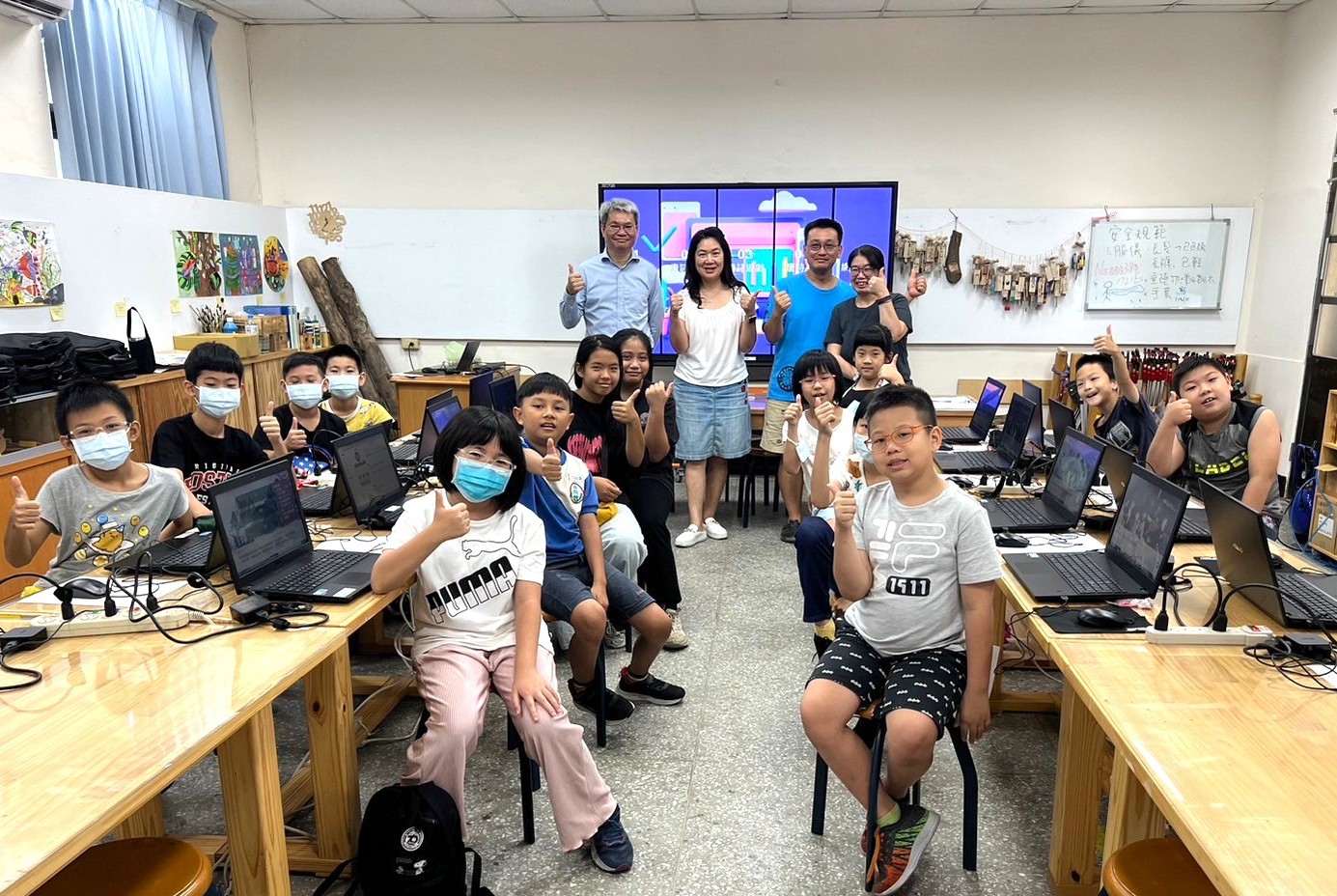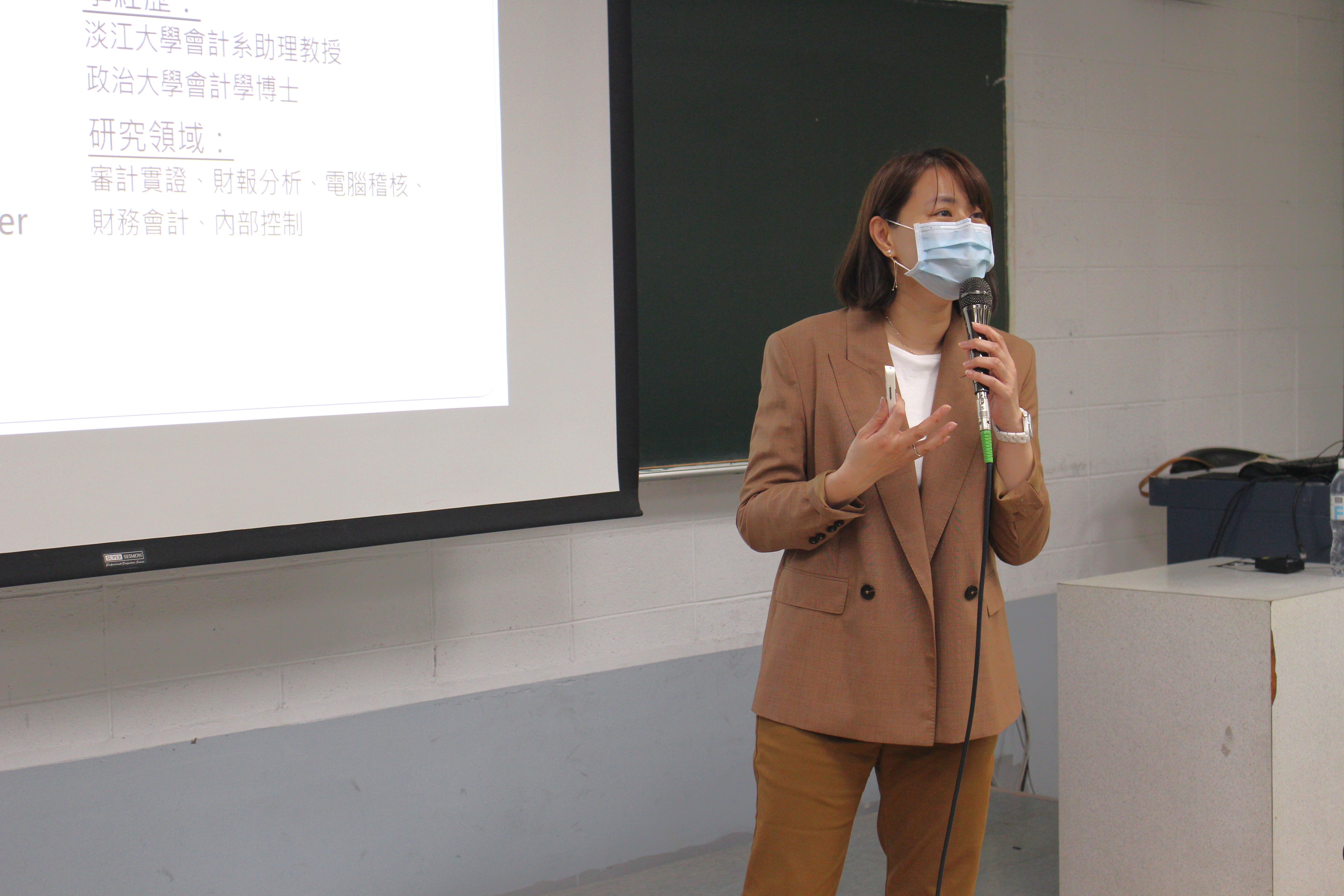The Department of Chinese Linguistics and Literature at Yuan Ze University spearheaded an interdisciplinary teaching experiment centered on “Children’s Literature × Generative AI,” extending from elementary schools to the university level.
This initiative brought artificial intelligence out of the confines of technology classes and into Mandarin lessons and fairy tales, accompanying children on journeys of creativity.
“Universities should not only be fortresses of knowledge but also forces for social progress,” said Prof. Shih-Hui, Hong Chair of the Department of Chinese Linguistics and Literature. The department collaborated with several elementary schools in Zhongli, Bade, Pingzhen, and Daxi, particularly those with limited resources, to launch an AI-powered children’s literature project. Children used ChatGPT to construct storylines, AI art tools to generate illustrations, and created animations and AR interactive picture books. In one workshop, a sixth-grader excitedly asked, “Can AI help me draw Kuromi?”—showcasing their strong interest in AI and reflecting the boundless possibilities of blending language learning with technology.
The project, led by Prof. Chih-Ming Huang of the Department of Chinese Linguistics and Literature, challenged the stereotype that Chinese majors only study classical texts. He designed AI-integrated courses such as Tang Poetry Museum and Botanical Encyclopedia in Poetry, enabling students to explore classical literature while engaging in generative AI creations—a brand-new learning experience of human-machine collaboration. According to Prof. Huang, this approach increased students’ reading motivation and cultivated their narrative logic, aesthetic perception, and digital literacy.
In addition, Prof. Huang and a group of digitally innovative educators formed a professional community called “Children’s Literature and Digital Innovation.” They focused on developing cross-disciplinary curricula integrating generative AI with children’s literature. The team experimented with AI adaptations of classic works such as The Little Prince, Strange Tales from a Chinese Studio, and Classic of Mountains and Seas. They also designed interactive teaching activities like “Create Character Cards with AI” and “Use ChatGPT to Write Picture Book Scripts,” making literature education more relatable to children’s lives and imaginations.
Prof. Huang emphasized that the purpose of this educational innovation was not to turn children into programmers, but to help them understand: “Language and imagination, combined with AI, can also create worlds.” This AI-powered initiative, rooted in children’s literature, helped young learners find and express their voices through language, technology, and creativity.
Beyond innovative teaching, the department extended the project into publishing and internship opportunities. University students conducted field research, collaborating with AI to produce local revitalization picture books inspired by Taoyuan and Zhongli’s local stories and natural landscapes. Two book drafts were already completed, with plans to compile them into a series for future publication. The department also aimed to launch a co-creation teaching materials platform, allowing teachers to reuse and adapt AI-generated content.
The Department of Chinese Linguistics and Literature planned to establish strategic partnerships with participating schools by providing AI teaching resources and training programs for local teachers. The initiative also included AI picture book activities for parents and children, combining local culture with family learning—bringing technology education into classrooms, homes, and communities to foster mutual development between the university and society.
In recent years, Yuan Ze University has placed AI education at the heart of its development. By integrating AI into the teaching environment and actively participating in the Ministry of Education’s TAICA AI Alliance program, the university aimed to provide students with a cutting-edge learning experience. Furthermore, Yuan Ze’s Office of Continuing Education offered free online AI courses to the public, encouraging lifelong learning and fulfilling the university’s social responsibility (USR) through knowledge sharing and real-world engagement from both faculty and students.
 English
English  正體中文
正體中文 



